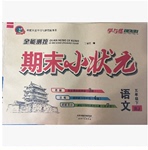题目内容
第四部分:书面表达(满分25分)
目前,不少人在写作与交流中喜欢使用网络语言,有时讲汉语时还夹杂着英语,如PK等。就此现象,你班最近举行了一场讨论。请根据下表的提示,客观的介绍讨论情况及你的观点。

1.词数:100-120,开头已经写出(不计入总词数)。
2.可根据内容要点适当增加细节,以使行文连贯。
3.参考词汇:荒诞ridiculous
Nowadays, with the development of the Internet ,there came a kind of language called Web Language.
Nowadays, with the development of the Internet ,there came a kind of language called Web Language. Some people even speak Chinese mixed with English words .This is a phenomenon worth thinking about.
40% students think it kind of ridiculous .In their opinion, it makes no sense in helping people communicate or learn English .Besides ,it is against the Chinese grammar rules .However, 60% students are fond of this way. They appreciate its humour. They think it of special help in expressing themselves .And it can make the language varied.
Personally ,I don't think it good to use this kind of language .It may be fashionable as some think ,but you may also get your idea confusing ,leaving other people at a loss as to your meaning.

 全能测控期末小状元系列答案
全能测控期末小状元系列答案
第四部分:书面表达(共两节,35分)
第一节:情景作文(20分)
假设你是李华,在上周进行的研究性学习活动中,你班同学了解了珍稀动物金丝猴的相关信息。请根据下列表格所提供的内容,给你的笔友Peter写封信,向他介绍此次活动。
注意:
1.信的开头和结尾已为你写好。
2.词数不少于60。
提示词:研究性学习:inquiring learning 金丝猴:golden monkeys
| 第一组 | 第二组 |
| ●到动物园观察金丝猴的特征 | ●上网了解金丝猴的现有数量 |
| ●去图书馆查阅金丝猴的习性 | ●听专家介绍对金丝猴的保护措施 |
| ●汇总信息,完成报告 | |
| ●活动体会:学会合作;体验新的学习方式 | |
How have you been recently? I’m writing to tell you something about our inquiring learning on the rare animal—golden monlkeys.
The students of our class were divided into two groups.
______________________________________________________________________________________________________________________________________________________________
What do you think of our inquiring learning? Looking forward to your reply.
Best wishes,
Li Hua
第四部分: 书面表达(共两节, 满分35分)
第一节 填空 ( 共10小题;每小题1分, 满分10分)
阅读短文,根据所读内容在文后76--85的空格里填上适当的单词或短语, 并将答案转写到答题卡上。注意:每空不超过3个单词。
In many English homes four meals are served; they are breakfast, lunch, tea and dinner. These are the meals that are served in the homes of people who are well to do.
Breakfast may be served any time for seven to nine. It consist of porridge, bacon and eggs (boiled or fried), butter toast or bread-and-butter with marmalade (酸果酱). Instead of bacon and eggs, fish may be served. Either tea or coffee is drunk at breakfast.
Lunch comes at about one o’clock. It generally consists of cold meat (left over from yesterday’s dinner), potatoes, and salad. After that there is bread or biscuits and cheese. Most people drink water at lunchtime; some drink beer or wine. It is not the custom to drink the spirits (烈性酒) like whisky or brandy even wealthy homes in the middle of the day.
Afternoon tea, taken between four and five, is the most informal meal of the day. If you are a friend of the family you may drop in for tea without an invitation or telling them that you are coming. Each person has a cup and saucer, a spoon and a small plate for bread-and-butter and cake. By the way, do not help yourself to cake first; bread-and-butter first, and then cake if there is any. Another piece of advice: do not put more than one piece of bread or cake on your plate at the same time.
Dinner is the most substantial (丰盛的) meal of the day and is a very formal meal. Many people even wear special clothes for dinner, so if you are asked out of dinner you must find out whether you are expected to wear a dinner suit; for you would feel very embarrassed if, when you go there, you were the only person in ordinary clothes. Dinner is generally served at about half past seven. All the members of the family sit down together and are on their best behavior. The head of the family sits at one end of the table; his wife sits at the other. If there is a guest, he generally sits in the place of honor, which is at the right of lady of the house. If there are several guests the most important is asked to sit there. During the meal conservation is carried on, you should try to get into the conversation with the person on your right or left, but you should not try to talk to someone who is a long way from you.
Title: 76._______________________
|
77. ___________ |
79. _____________ |
Food |
Drinks |
Notes |
|
Breakfast |
7 to 9 a.m. |
Porridge, bacon & eggs, etc |
83. ________________ |
|
|
Lunch |
80. _____________ |
Cold meat, potatoes, salad, bread, biscuits & cheese |
84. ________________
|
|
|
Afternoon tea |
4 to 5 p.m. |
82. ______________________ |
tea |
85. __________ |
|
78. ___________ |
81. _____________ |
|
|
Most formal |




